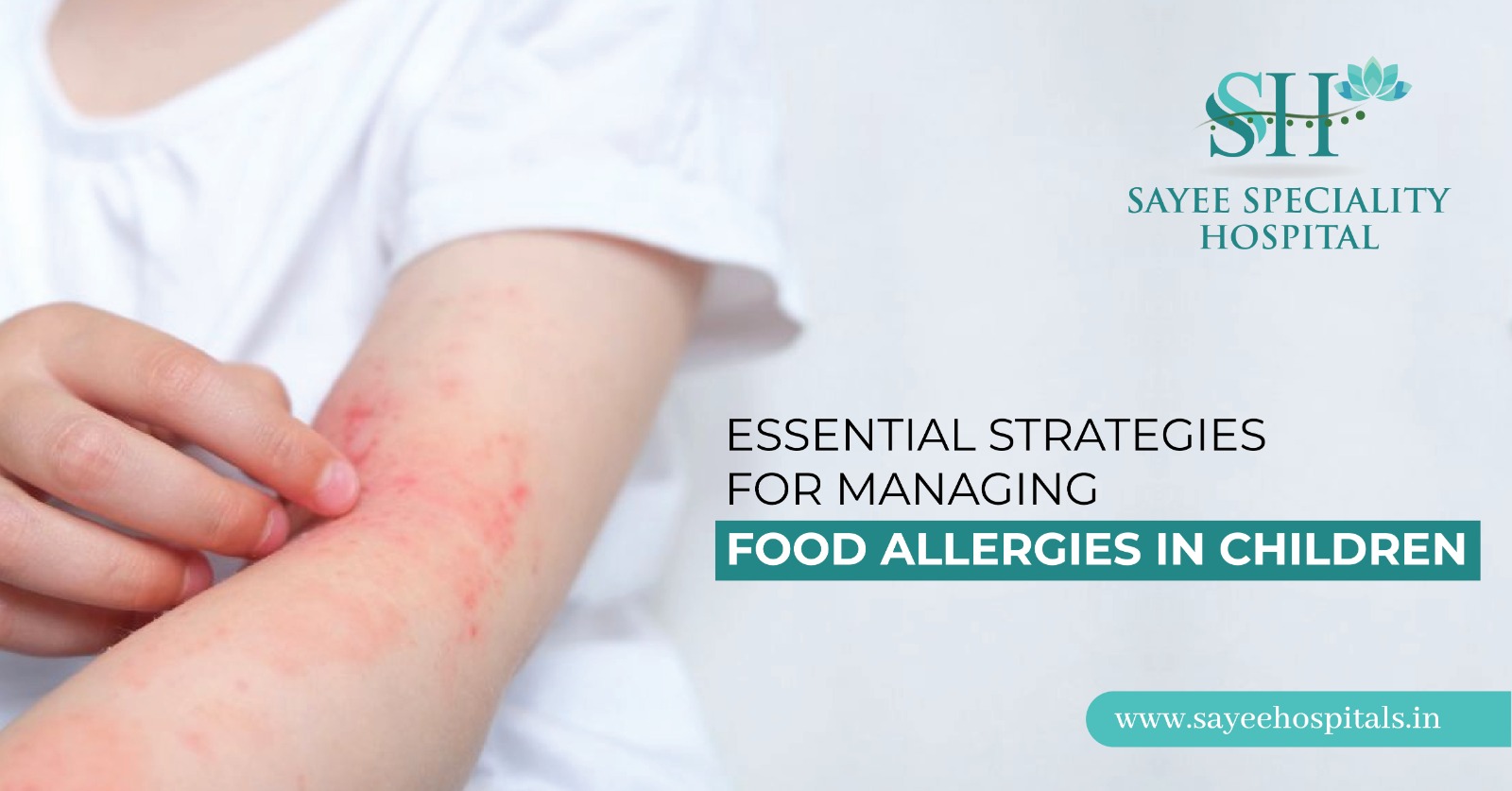Managing food allergies in children is crucial for their health and well-being. Here’s a comprehensive guide to help parents navigate this challenge effectively:
Understand Food Allergies
Food allergies occur when the immune system overreacts to specific food proteins, leading to symptoms ranging from mild irritation to severe anaphylaxis. Common allergens include milk, eggs, peanuts, tree nuts, soy, wheat, fish, and shellfish. Recognizing these triggers is vital for effective management.
Recognize Symptoms
Symptoms of food allergies can vary from mild to severe and may include:
• Hives
• Swelling
• Difficulty breathing
• Nausea and vomiting
• Diarrhea
Severe reactions, such as anaphylaxis, require immediate medical attention. Administer prescribed emergency medications like epinephrine and seek professional help promptly.
Get an Accurate Diagnosis
Consult a paediatrician or allergist for proper diagnosis. Allergy testing methods include:
• Skin Prick Test: Quick and results are available in 15-20 minutes.
• Blood Tests: Useful for detecting allergens, especially in asthmatic children.
• Elimination Tests: Removing suspected allergens from the diet to observe improvements.
• Food Challenge Tests: Administering allergens under medical supervision to identify reactions.
Avoid Triggers
Once allergens are identified, avoid exposure by:
• Reading food labels thoroughly to spot allergens.
• Teaching your child to recognize and avoid these allergens.
• Communicating with restaurant staff about food allergies and opting for allergen-free menu options.
• Preparing meals at home to control ingredients and avoid cross-contamination.
Create an Emergency Plan
Develop a plan detailing:
• Education about the symptoms
• How to administer emergency treatments.
• Contact information for emergency services and your child’s allergist.
Seek Treatment Options
While no cure exists, treatments can reduce reaction severity:
• Oral Immunotherapy (OIT): Gradual exposure to allergens to build tolerance.
• Medications: Antihistamines and other drugs to manage symptoms.
Teach Allergy Management
Equip your child with skills to handle their allergies, such as:
• Recognizing allergens
• Reading labels
• Communicating their needs
• Role-play scenarios to build their confidence and independence in managing their condition.
Stay Informed
Keep updated with the latest research and guidelines on food allergies. Engage with support groups and healthcare providers for ongoing support and information.
By understanding symptoms, securing accurate diagnoses, avoiding triggers, preparing for emergencies, exploring treatment options, and educating your child, you can effectively manage their food allergies and ensure their well-being.
